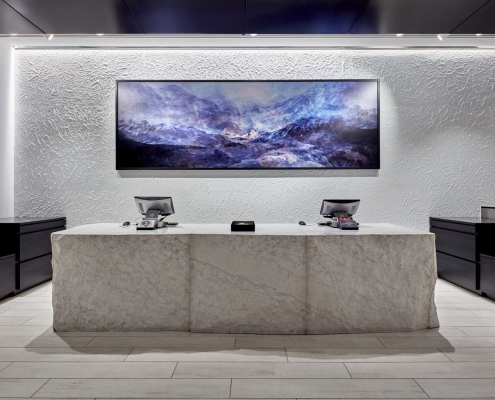 https://doubleretail.com/wp-content/uploads/KNOWLEDGE/shutterstock_164791247.jpg
2166
3000
Double Retail
https://doubleretail.com/wp-content/uploads/common/double-retail-menu-logo-01.png
Double Retail2018-02-08 15:22:112022-02-03 14:09:06Nature or Nurture - Can you change the shape of a business?
https://doubleretail.com/wp-content/uploads/KNOWLEDGE/shutterstock_164791247.jpg
2166
3000
Double Retail
https://doubleretail.com/wp-content/uploads/common/double-retail-menu-logo-01.png
Double Retail2018-02-08 15:22:112022-02-03 14:09:06Nature or Nurture - Can you change the shape of a business?In reading David Hieatt’s book “Do: Purpose” recently – a quick read that I highly recommend – its initial pages talk about setting out your brand purpose with one (among many) key insight to “define your enemy”. The basic premise being that once you have done this, your idea of purpose becomes your driver, that ‘thing’ that keeps everyone going.
Unsurprisingly, this seemingly quick exercise really focuses your mind and then turns out to be a far greater undertaking. Who is our enemy? How do I know if I’ve answered that question correctly? What happens if we all believe the enemy to be a different thing? I don’t have the answers to these questions by the way, but I stand firm in my belief that a consensus can be found.
For us at Double, I’d like to make a claim that our enemy is waste. Whichever way I look at our business, what we produce, how we do it, why we do it, how we talk to each other – There’s always one common denominator – reducing waste.
I also don’t want this word (or term) to be misconstrued. Waste is not just a physical thing, the food you didn’t eat, the coffee cup you chuck in the bin or the off-cuts in production. Waste is far larger. It covers the effort you put into what you do, the time that you use, the money you spend, the missed opportunity. Waste is a large concept.
A few examples of how this applies to us;
One: We design, develop and deliver retail fixtures and fit-outs for brands all over the world. In doing this, we are acutely aware of the impact we have on the environment. Our contribution to landfill, unsustainable materials and practices, and carbon footprint could be huge. In response, our focus is to lead a more responsible vision of retail design where we aim to reduce and/or eliminate these impacts, among others (more on that to come, so stay tuned).
Two: We love process. We focus on the process of doing everything that we do down to the smallest detail. Why? To reduce the time it takes or the cost involved. Both of these things could be seen as waste in this context. Don’t waste anybody’s time and certainly don’t waste their money. Any disagreement that takes place among our staff will have waste (in these two forms) at its root – I’m sure of this.
Three: Consumerism. The increasing pace in which we buy things, single-use items, fast fashion, throwaway culture. We could take aim at all of these ideas individually, but again, I believe they all sit under one umbrella – waste. We don’t want to support any of these notions, but we can’t just turn a blind eye either. One of the most impactful things we can do as a business is to engage brands that work in these ways in conversation, because even a 1% improvement is a step in the right direction, and often, people just need support.
Can I have some more?
 https://doubleretail.com/wp-content/uploads/KNOWLEDGE/shutterstock_164791247.jpg
2166
3000
Double Retail
https://doubleretail.com/wp-content/uploads/common/double-retail-menu-logo-01.png
Double Retail2018-02-08 15:22:112022-02-03 14:09:06Nature or Nurture - Can you change the shape of a business?
https://doubleretail.com/wp-content/uploads/KNOWLEDGE/shutterstock_164791247.jpg
2166
3000
Double Retail
https://doubleretail.com/wp-content/uploads/common/double-retail-menu-logo-01.png
Double Retail2018-02-08 15:22:112022-02-03 14:09:06Nature or Nurture - Can you change the shape of a business?
